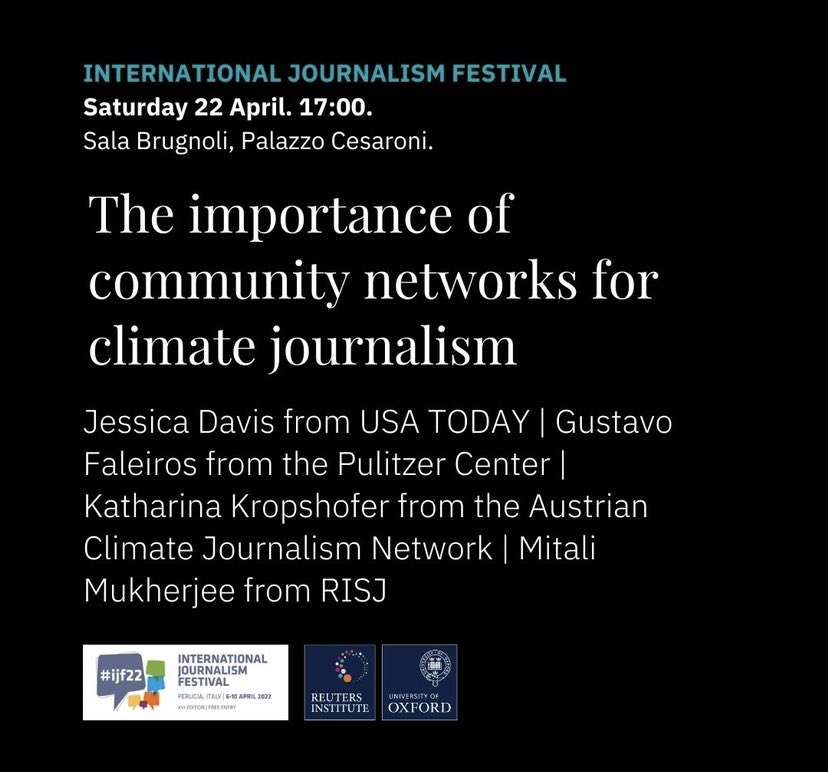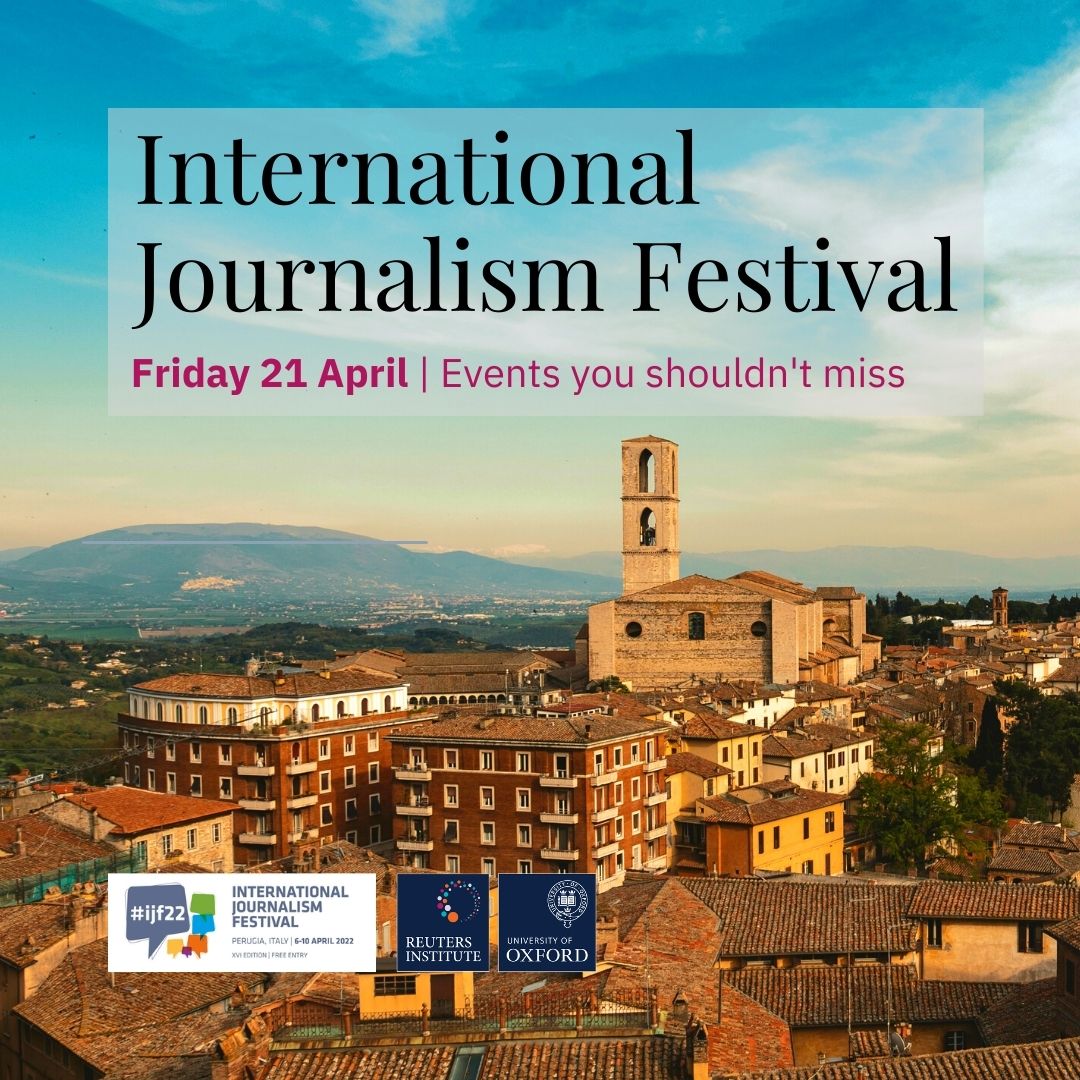Kicking off this panel on whether governments can, will and should save independent journalism. Our own @rasmus_kleis moderates the talk featuring our dear @MeeraSelva1 from @Internews and @jodieginsberg from @pressfreedom
📺 Watch
journalismfestival.com/programme/2023…
📍Key points in thread
📺 Watch
journalismfestival.com/programme/2023…
📍Key points in thread

"Journalists shouldn't be naif. They shouldn't expect the people they aspire to hold to account to be the final guarantors of their ability to do so freely. But governments can do a lot to enable the work of independent journalism. It's a choice," says @rasmus_kleis #ijf23
"Funding from governments can take many forms and can produce different types of media capture. But it can also be done in way that useful for independent journalism. It's also important to look to the future: things like AI, upscaling, media literacy," says @rasmus_kleis #ijf23
"Governments shouldn't treat journalists differently from other parts of society. Journalists are meant to be troublemakers, they are meant to ask tough questions. So any help governments can provide must be managed through several stakeholders," says @MeeraSelva1 #ijf23
"There are several ways in which governments can help independent journalism: funding of journalism organisations, tax breaks, changes in the regulatory space," says @jodieginsberg #ijf23
"This idea of 'public interest journalism' as a way to work out the kind of media that governments are prepared to fund is problematic. This tends to exclude marginalised populations. And when we do this, dictators follow suit & use it for their ends," says @jodieginsberg #ijf23
"Sometimes what happens is that a few media darlings get funded because who know how to fill in the forms. Even if they are excellent, it's good to look elsewhere too. it's also key to foster innovation in certain countries and certain areas," says @MeeraSelva1 #ijf23
"What we are seeing is the entire media development budget is cut in many countries. Sometimes governments also confuse supporting independent journalism with things that are actually strategic communications," says @MeeraSelva1 #ijf23
"Governments are pulling back on these media development budgets and this is bad. But we journalists should also show audiences the value of what we do. Some organisations have managed to build membership models around the value of what they do," says @jodieginsberg #ijf23
How would you define independent journalism?
"Editorial independence means that nobody but a news editor has control over what is published," says @MeeraSelva1. "We should add concepts like 'pluralistic media' to these discussions too," adds @jodieginsberg #ijf23
"Editorial independence means that nobody but a news editor has control over what is published," says @MeeraSelva1. "We should add concepts like 'pluralistic media' to these discussions too," adds @jodieginsberg #ijf23
Should governments tax big tech and create a fund to support journalism?
"This has been tried in several countries and the result has often been to favour big media organisation, and not small media outlets ," says @jodieginsberg #ijf23
"This has been tried in several countries and the result has often been to favour big media organisation, and not small media outlets ," says @jodieginsberg #ijf23
"Sometimes journalism has a negative impact on societies and on some audiences and the news industry should have a reckoning on that," says @rasmus_kleis, responding to @ShirishMM, who mentioned this report by @amyross87 et al we published this week #ijf23 reutersinstitute.politics.ox.ac.uk/news-powerful-…
• • •
Missing some Tweet in this thread? You can try to
force a refresh

 Read on Twitter
Read on Twitter
















